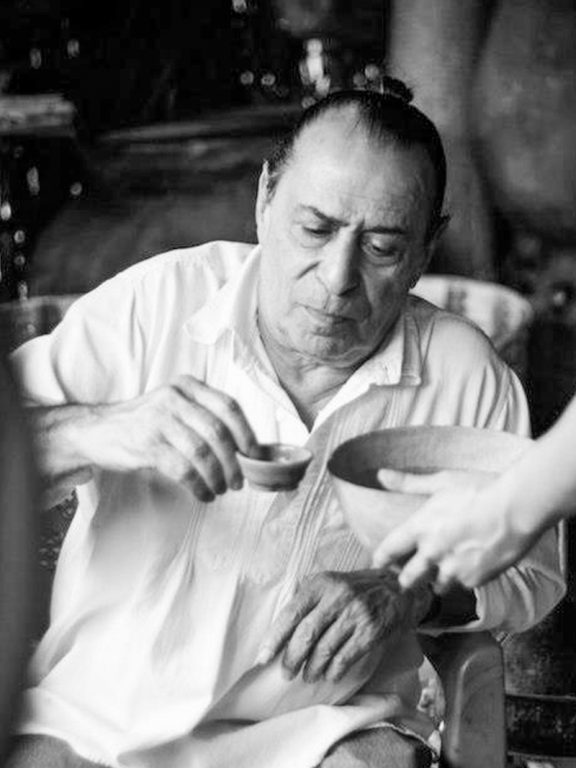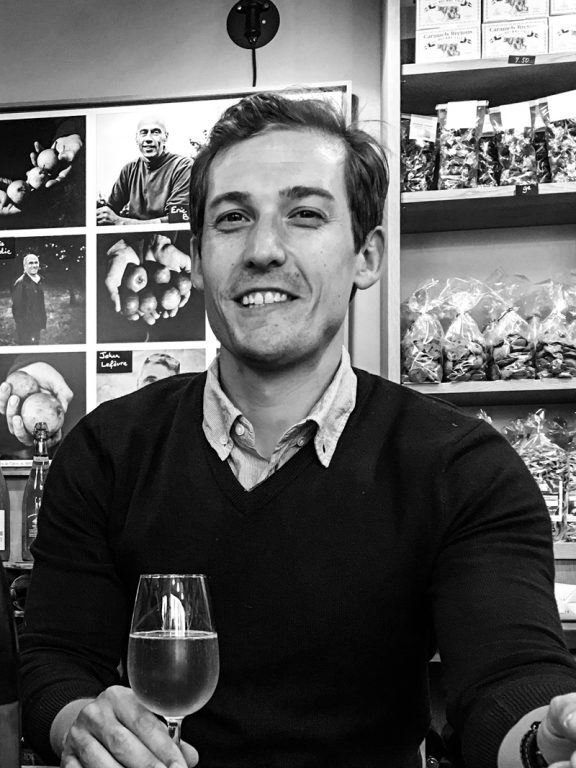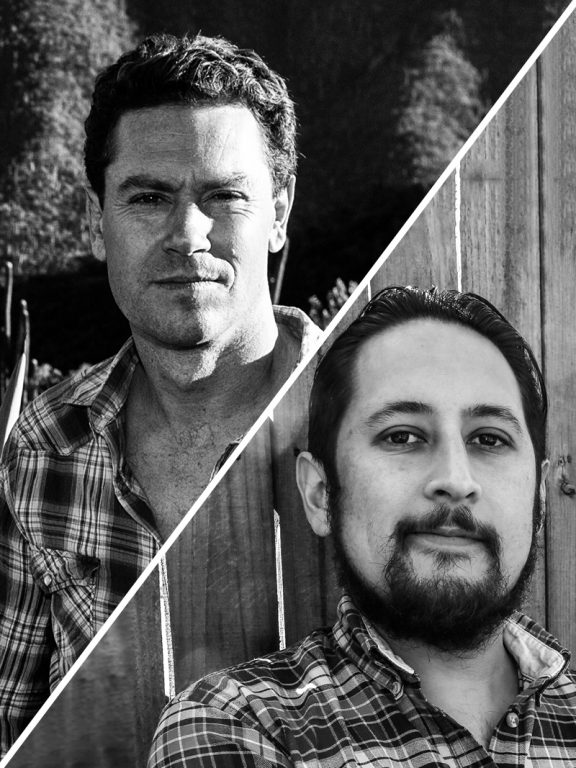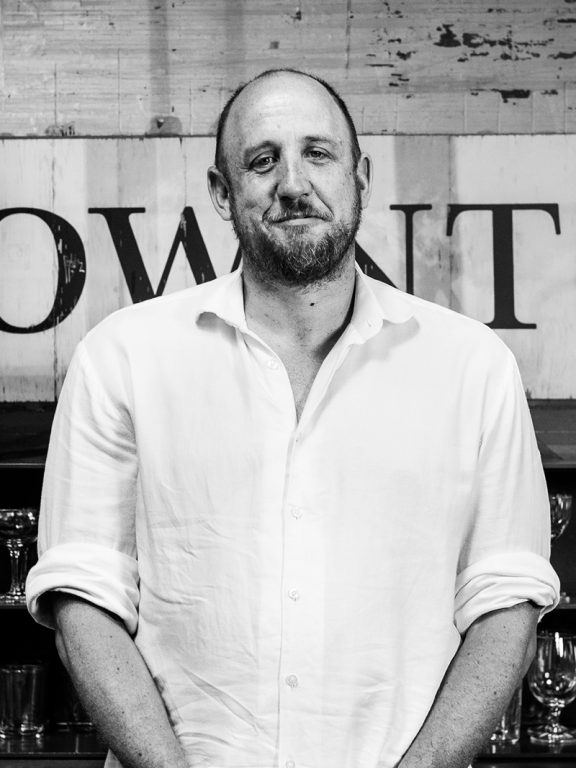As 90-year-old Florencio Carlos, who makes our Pechuga and Ibérico mezcals, lay in bed last January, preparing to die from an embolism, he was having the most beautiful hallucinations—or dreams, it’s hard to know which—even if they scared the living daylights out of his two 50-ish daughters.
In his head, Florencio was reliving the 1950s, envisioning how he and his buddies harvested magueys (agave plants) with a team of oxen pulling a high, two-wheeled cart. Back then, there were so many huge, shoulder-high wild arroqueño everywhere in the village of Santa Catarina Minas, in the Mexican state of Oaxaca, that it was a delight to make mezcal.
When we began to work together in 1996, Carlos knew all the surrounding villages for miles—there was a catalog in his head of where, for nearly nothing, he could purchase particular magueys from his friends’ fields, chosen by degrees of total ripeness. Such knowledge was a rarity a quarter century ago, since there were basically three commercial bottlings, composed mainly of Guatemalan cane spirits flavored with Oaxacan roasted agave, passing themselves off to the world as “mezcal.” The work of people like Carlos was entirely unknown.

Don’t miss the latest drinks industry news and insights. Sign up for our award-winning newsletters and get insider intel, resources, and trends delivered to your inbox every week.
Back then, the only threat to maguey—the agave plant—was the tequila shortage cycle, when the Jalisciense would send huge semitrailers down to strip our countryside of its beautiful bounty.
And so Del Maguey grew from a wish to share great traditional artisanal mezcals with my friends. We created sustainable artisanal mezcal production by slowly uniting a group of 12 Zapotec, Mixe, Mixtecan, and now Popolocan families. My only caveat has been: “Do not change your traditional methods and flavors.”
Del Maguey is thus correctly credited with the creation of the “category” of ancestral and artisanal Mezcal, and with bringing it to a wider world. We were the first to do so, and we have worked methodically to keep the traditional art of distillation in place—not to change or industrialize it. By extension, our mission has been to protect the traditional indigenous cultures producing these mezcals by providing dependable communication and cash flow. Our palenqueros (producers) know exactly what they need to do with that money to support their families and communities.
By means of these relationships, and by cultivating extended ties with trained growers and distillers over two decades, Del Maguey was able to achieve a continuous scale-up of production without sacrificing authenticity—or the potential for further growth within traditional indigenous Indian societal models. Del Maguey is uniquely connected to, and involved in, giving back to the Oaxaca and Puebla communities. That’s why our original idea, of single-village mezcals, also serves to remind the world of the authentic and ancient culture that lies behind these products.
Because we care deeply about the people throughout the region, we assist with water, education, and other life-improving development programs. We provide funding for the cultivation and planting of maguey, emergency medical funding, construction funding, and free stills and fermentation tanks. These efforts are sincere and are perceived as such.
These commitments differentiate us from the new corporate entrants to the market, who are primarily interested in exploiting mezcal’s commercial potential and the Zapotec people who make it. Concerns about this expanding interest in mezcal are perhaps best illustrated by the dwindling quantities of maguey.
These plants, so plentiful in number when Florencio Carlos began harvesting, have now become scarce. Today people are harvesting three-year-old plants! (How they get fermentable fructose from them is beyond me.) By contrast, I just had a miracle harvest of nine-year-old espadin that I planted by hand in the ancient terraces of my head village, in an area called Boca del Cerro, “mouth of the mountain.” My landowner partners did not keep them weed free, as per the tradition of medias (an even split at harvest), and they shot their roots deep, converting into a wild form of agave. These stressed maguey made an incredible 20th-anniversary mezcal.
We know that maguey is a dwindling resource, which is why we developed a robust planting system to replenish our agave sources—to ensure that we have a greater supply in the future than we do now. But there are other concerns: social responsibility, organic and natural sustainability, and the need to protect a culture being pressured by a flooded mezcal market that now includes more than 130 brands.
For this reason, we chose to form a business partnership. I’ve received many offers for investment into Del Maguey over the years, and I always said, No, thank you. We did not believe that anyone could ever completely understand or buy into our mission to preserve this culture and to protect the ancient process of making mezcal.
But after 22 years, we found the right partner—one who understands exactly what Del Maguey is, and that wants us to continue to be exactly who we have always been.
That partner is Pernod Ricard. After almost a year of getting to know each other, we agreed to a partnership that made Pernod Ricard a majority stakeholder in Del Maguey. We are becoming part of their New Brand Ventures Division, a small group of entrepreneurial craft spirits companies.
Those who may be taken aback by this decision should know that it was not made lightly. The team at Del Maguey will remain intact; that includes our entire team in Mexico and the United States. We will continue to operate Del Maguey as we always have. The liquid art of our palenqueros will not change.
I saw firsthand Pernod Ricard’s commitment to sustainability and social responsibility both globally and, locally, in Oaxaca. The company worked to increase the well-being of the community of Santa Ana del Rio and embraced and honored local customs and traditions. We are confident that Del Maguey has found a like-minded partner committed to helping us to preserve this culture and this ancient process, and to support the amazing indigenous people who have mastered it.
And that ended up being the crucial element in our decision: Each of our palenqueros—each of the 12 families in 12 villages that work with us, some of whom have been with us from the beginning, none of whom have ever left us—will continue to be assured that they will be able to craft mezcals in the exact same way that they have for generations. This investment allowed for what we wanted from Del Maguey from the start: a sustainable future for the families and the communities we have come to know so well.
Ron Cooper is an internationally recognized artist and the founder of Del Maguey. In 1990, while living in Oaxaca, he traveled the countryside, following rumors of great pure mezcals made by Zapotec farmers—spirits that retained the mysteries and embraced the notion of alcohol as a gift from the gods. His long advocacy helped introduce artisan mezcals to the United States.







